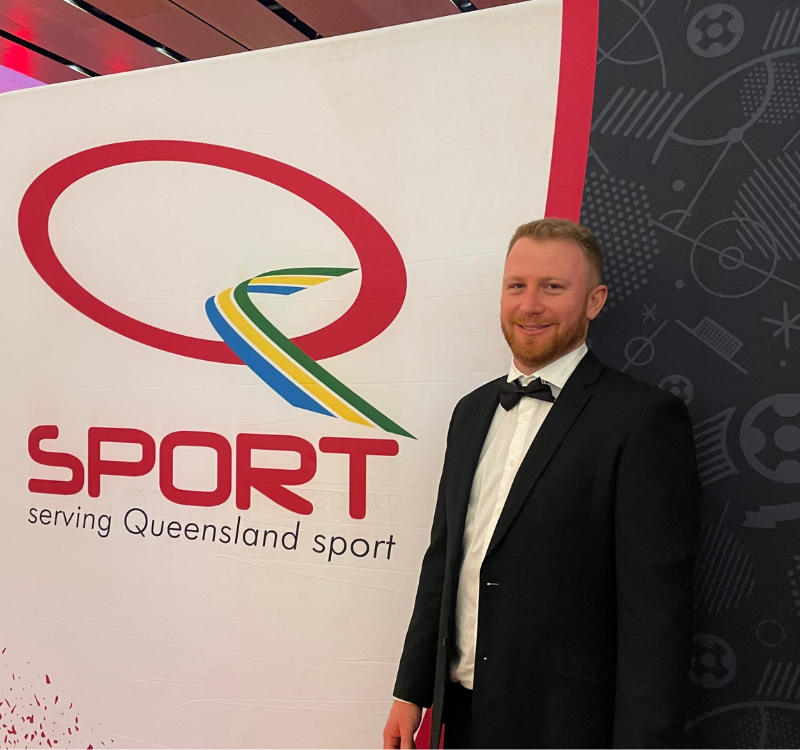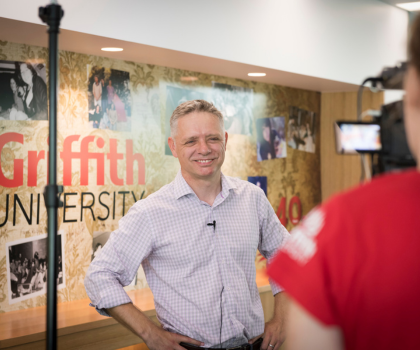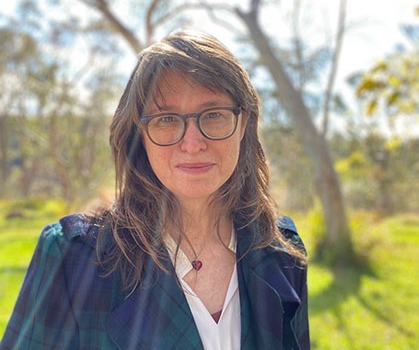
Mitch is the Principal Officer for Community Facilities Maintenance at Brisbane City Council, where he leads a team responsible for 700 facilities. In this interview, Mitch talks about disaster recovery to building relationships, how he ensures these facilities serve the community well.
You are the Principal Officer for Community Facilities Maintenance at Brisbane City Council. What does a “typical” day look like for you?
As Principal Officer Community Facilities Maintenance, I lead the section’s maintenance team. My role supports the team with a focus on building and maintaining relationships with key stakeholders and delivery partners while providing guidance to ensure we deliver outcomes for our customers.
The team is the asset owner’s representative for approximately 700 community facilities, of which approximately 600 are leased by not-for-profit organisations. The team is responsible for planning and delivering renewal and maintenance projects, managing budgets and actioning planned and reactive maintenance in accordance with lease agreements. While we are delivering some key projects to enhance safety at community facilities, delivering disaster recovery and resilience works after the February 2022 severe weather event has been and continues to be a focus for the team.
How do you prioritise maintenance and project works based on budget constraints and community needs?
Council’s budget governance process is very robust with budget submissions and development based on asset condition and risk. The process starts early each financial year, has multiple stages of review, prioritisation, and approvals before being finally adopted by Council in June.
We align budget prioritisation with industry standards with consideration given to Institute of Public Works Engineering Australasia (IPWEA) standards and practice notes, the Building Code and Australian Standards along with state sporting body standards and guidelines.
In addition to the standard budget process, grant programs run by various government bodies open throughout the year. In our section is the Sports and Community team where dedicated officers will work with lessee’s to clearly articulate and prioritise their needs to apply for grant programs.
How do you effectively build relationships and manage communication with diverse stakeholders, including internal teams, elected officials, and community groups?
I communicate transparently with all stakeholders so that they understand the parameters and priorities in which I am working. Transparent communication supports building trust which helps to deliver outcomes that best meet the needs of all stakeholders.
You mentioned that you oversee the maintenance and project works of approximately 700 community facilities. Is there a particular facility that is special to you? If so, why?
One facility that stands out is the Jindalee Bowls Club. The club suffered significant damage from flood inundation in February 2022 and is at risk of future inundation. My team lead the reinstatement works to this facility with a focus on improving resilience. Through working with the club's committee and local councillor, we developed a design that drastically improved flood resilience through turning the lower level into open air storage, raising the electrical switchboard, installing epoxy floor coverings and painted blockwork internal walls.
While Council focussed on the building asset, the club’s president and committee continued the resilience approach when installing equipment and developing operational plans. The club received funding for kitchen and bar fit outs and purchased equipment on wheels that can be quickly disconnected and removed. The club developed a plan to wheel out most kitchen equipment and fridges in the event of flooding and have an agreement with a local storage company to ensure future clean ups are limited.
I had the privilege of attending the club's reopening event in late 2023 where I was able to see the community connection to the facility and the genuine appreciation to Council from the club and community that the facility was reopened.
How does your role at Brisbane City Council align with your long-term career aspirations?
My experience in the Principal Officer Community Facilities Maintenance role has further developed my leadership skills through exposure to multiple business disciplines, external stakeholders, leading business improvement implementations and organisational change. I have also gained experience through backfilling executive leader roles throughout the organisation with the most recent starting in January 2024 for six months. Through the experience and opportunities I’m gaining, this will help to position me in becoming a senior executive.
Looking back, what were your biggest takeaways from the MBA program?
Griffith’s focus on business and environmental sustainability rather than just creating shareholder value aligns well in my current portfolio working with not-for-profit groups. Particularly with sporting clubs, environmental sustainability such as reduced water and energy usage results in a direct cost reduction allowing groups to invest and focus on their purpose. This balance of purpose and sustainability allows myself and my team to assist organisations to be sustainable.
How has the #GriffithMBA alumni network been valuable to you, and how do you contribute to it?
The Griffith MBA alumni network stays connected through the many events hosted each year. I find value in being able to connect with likeminded professionals to discuss opportunities to work together and future career aspirations.
Can you tell us about your professional journey, and what led you to pursue an MBA?
I started my career in Council as an apprentice electrician and progressed into management roles in electrical infrastructure construction. After 10 years and multiple roles in the electrical industry, I moved into civil infrastructure where I was a project manager for major road and major drainage upgrades for three years. In 2021 I moved into my current role initially managing one program of work and through business changes my team and responsibility expanded.
When I moved from a technical role into a business management role, I realised I needed to expand my business knowledge and a mentor steered me toward a Graduate Certificate. While studying the Graduate Certificate I found I was using what I was learning immediately in my work. Due to the benefit of the Graduate Certificate, I continued through to the Masters and continued to have the same experience.
Do you have any personal goals or aspirations for 2024? How do you plan to balance them with your work commitments?
For the past year I’ve focused on finding balance in my work and personal life and have managed to spend increased time with family and friends. My goal this year is to keep up that social connection whilst improving my fitness. The goal to improve my fitness is partially driven through meeting new people and wanting to share their hobbies but also working with sporting clubs every day.
If you have a question for Mitch, we encourage you to connect on LinkedIn.
You may also like

Meet Academic, Professor Nick Barter
Nick was MBA Director for several years and currently teaches into the MBA program. In this interview, Nick reflects on his leadership of the program, gives us a glimpse into the book he co-authored, and shares advice for future MBA students.

Meet MBA Alumnus, Seema Chauhan
Seema shares the inspiration behind her career as a Migration Agent and the launch of her company, Adobe Australian Migration. Seema talks about how the values-based MBA plays a pivotal role in her professional life, in the importance of volunteering and giving back within the community and her recent appointment on the Women on Boards Cultural Diversity Committee.

Meet MBA Alumnus, Katie McRobert
Katie shares insights into how evidence-based policy solutions are countering the severe and increasingly frequent climate impacts on Australia’s farming industry.